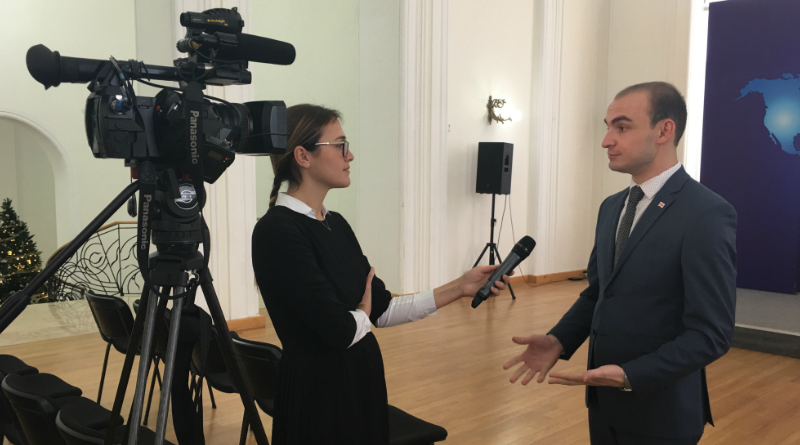Zviad Adzinbaia Meets the Security Community in Tbilisi, Georgia
By Zviad Adzinbaia, MALD 2018 Candidate, The Fletcher School
For my capstone project research on “Russia’s Influence on Advancing U.S.-Georgia Security Cooperation”, I traveled to Tbilisi from December 15, 2017 through January 15, 2018. The main purpose of this visit was to meet and interview Georgian security officials, experts, and other key stakeholders in the security field.
As part of this trip, I interviewed fifteen high-level decision-makers and experts in the security sector in Georgia. In addition, I held formal and informal conversations with current and former government officials and civil society representatives to learn more about central aspects pertaining to prospects of advancing U.S.-Georgia security cooperation in the medium and long-term periods as well as Russia’s potential role in this process. More specifically, I explored the following two major questions. First, to what extent is enhancing U.S.-Georgia security cooperation possible? Second, what could be the factor of Russia in this process?
Meeting with senior decision-makers and networking with the security community in Georgia provided me with highly valuable, first-hand insights on the current context and future prospects of security cooperation between Washington, D.C. and Tbilisi. Furthermore, this trip gave me a unique opportunity to question established notions surrounding relations among the United States, Russia, and Georgia.
Notably, most of my respondents give high priority to enhancing security cooperation between the United States and Georgia, citing Russia as a major threat to Georgia. While agreeing on the general framework of deepening U.S.-Georgia security ties, government and opposition politicians in Georgia view the ways and means of pursuing such a policy dissimilarly. The ruling Georgian Dream party leaders assessed the current U.S.-Georgia partnership structure as sufficient for further development. However, the opposition leaders from the United National Movement and independent pundits advocate for greater engagement with the United States.
The top areas my respondents named essential to enhancing U.S.-Georgia security cooperation include defense, economic cooperation as a crucial part of stability in the Black Sea region, and the role of Georgia in U.S. engagement in Eastern Europe, Central Asia and the Caucasus, and the Middle East. In discussing the limitations of advancing of U.S.-Georgia security cooperation, Russia was named as a primary challenge, followed by domestic U.S. and Georgian political processes.
As part of my capstone project, I will further visit Washington, D.C. and Moscow this semester. During these trips, I will explore various positions in the United States and Russia on the matter of my research by meeting and interviewing American and Russian experts and policymakers. In sum, I believe that covering these three capitals – Tbilisi, Washington, D.C., and Moscow – will not only provide me with first-hand accounts but also greatly help me better understand the evolving regional and international security architecture.
I would like to extend my cordial thanks to The Fletcher School and Carnegie Corporation of New York for providing me with this outstanding opportunity. Traveling to the above-mentioned countries is a key component of enriching my research and professional knowledge in the security field.

